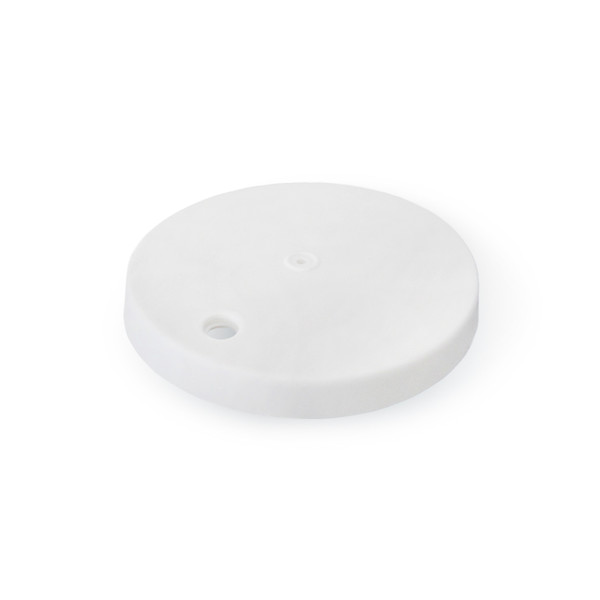So thankful
Verified Buyer
The glasses with.these lids have been a lifesaver in caring for my mom. She has Alzheimer's and has forgotten how to drink. With these lids we are able to assist her in drinking.
 $6.99 shipping on all US orders
$6.99 shipping on all US orders
www.ARKTherapeutic.com
Copyright ©️ 2025 ARK Therapeutic. All Rights Reserved.
Flexible, snap-on, spill-resistant spare/replacement lids for the Sip-Tip|||Need a spare lid for your Sip-Tip®? These flexible tumbler cup lids snap securely onto the tumblers to minimize spillage.
Posted by Debbie on 24th Sep 2022
Verified Buyer
The glasses with.these lids have been a lifesaver in caring for my mom. She has Alzheimer's and has forgotten how to drink. With these lids we are able to assist her in drinking.

13 Reviews

20 Reviews

26 Reviews

3 Reviews
ARK chew tools come in 3 color-coded toughness levels:
Usually we recommend going with the softest/standard level by default. Unless someone chews through or causes damage to anything else they chew on (chews through pencils, chews holes in shirts, etc.), in which case the XT level would be longer lasting.
If someone does chew through things, it’s possible they may need the toughest XXT level eventually. XXT is super firm, though, so we don't always recommend getting it right off the bat (some people find it uncomfortable chewing on something that firm).
So XXT is usually best either for people who have chewed through the XT level already, and/or for anyone who already likes chewing on very hard items - things like legos, hard plastic toys, wooden items, etc.
Heads up: Designs that are wider and "beefier" will feel tougher than designs that are more slender in the same toughness level. For example, the Dino-Bite in XT will feel tougher than the Krypto-Bite in XT.
Probe Tip - This is the most versatile & popular tip attachment. It's bumpy on one side and striated on the other side for different levels of sensory input (the bumpy side provides more input than the striated side).
Mini Tip - This is a smaller version of the Probe Tip, designed for smaller mouths (about 2.5 years and under). This age recommendation is not a hard-and-fast rule though - we've seen younger kids use the Probe Tip and older individuals use the Mini Tip.
Preefer Tip - This tip attachment is rounded with ridges all along the circumference for when a "rolling" action is desired for a different kind of sensory input. Roll it over the lips, across the tongue, and inside the cheeks.
Fine Tip - This tip narrows down to a fine point, which makes it perfect for pinpointing very specific areas in the mouth.
Bite-n-Chew Tip - These tips are rounded and chewable, for practicing biting & chewing skills. The "extra long" versions are about an inch longer and a little skinnier, to make it easier to reach the back molars. The textured version has bumps for extra sensory input.
Bite Tube Tip - These tips are similar to the Bite-n-Chew Tip, but with a hollow center so that you can put puréed foods (applesauce, yogurt, etc.) inside the tip for functional biting & chewing practice. Once you bite down on the tip, you get 'rewarded' with a taste of food.
Spoon Tip - Great for feeding therapy and mealtimes, these attachments turn the Z-Vibe into a vibrating spoon! The smooth, gentle vibration can help "wake up" the mouth and decrease aversions. The textured version has bumps on the bottom of the spoon bowl to help stimulate the tongue and lower lip, and to help encourage the transition from puréed to more solid foods. The hard Spoon Tip is rigid, like a regular spoon. The soft Spoon Tip is flexible (still firm enough to hold food, but flexible enough to be gentle on the teeth if someone bites down on the spoon.
Tongue Tip - This tip can be used as a traditional tongue scraper to help establish good oral care. It can also be used to help establish the concept of tongue lateralization and elevation (hold the Tongue Tip vertically in front of the mouth and ask the individual to put the tip of their tongue inside the hole, then guide the tongue from side to side or up and down). You can also place the Tongue Tip flat on top of the tongue to provide input to a large surface area of the tongue (this tip has the largest "footprint" surface-area-wise).
Popette Tip - This tip attachment is an adaptor that lets you use lollipops with the Z-Vibe. Just twist the Popette Tip into the Z-Vibe handle, then press a lollipop into the Popette Tip. Lollipops are a fun way to get kids interested in sensory oral motor exercises.
Brush Tips - The soft version has gentle bristles for gum massage; the hard version has firmer bristles closer to that of a traditional toothbrush. These can be used to help get orally sensitive individuals more comfortable with oral care, so that they can eventually use regular toothbrushes, be more comfortable going to the dentist, etc.
Pencil - This attachment turns your Z-Vibe into a vibrating pencil! The vibration of the Z-Vibe is very smooth, so it doesn't create squiggly lines. Instead, it can help increase focus by providing more sensory input and awareness to the hand.
Pen - This attachment turns your Z-Vibe into a vibrating pen.
Crayon - And this attachment turns your Z-Vibe into a vibrating crayon.
Brick Tip - This tip attachment has large bumps on one side and small bumps on the other side for lots of varying sensory input while biting & chewing. It comes in 3 toughness levels for mild to moderate to avid chewing.
Copyright © 2025 ARK Products, LLC All Rights Reserved. Privacy Policy Terms of Use



